Two performances for women were held in the month of October in Jerusalem, Israel – on a topic usually kept quiet and whispered in secret.
Mikva the Musical, Music, and Monologues for the Deep, 2.0, was performed at the OU Israel Center on October 18 and at the Shalva Theater in Jerusalem, Israel, on Thursday night, October 27, 2022, to a women-only audience.

The production was created and co-produced by Myra Gutterman and Toby Klein Greenwald and has been presented previously in Israel and in the US.
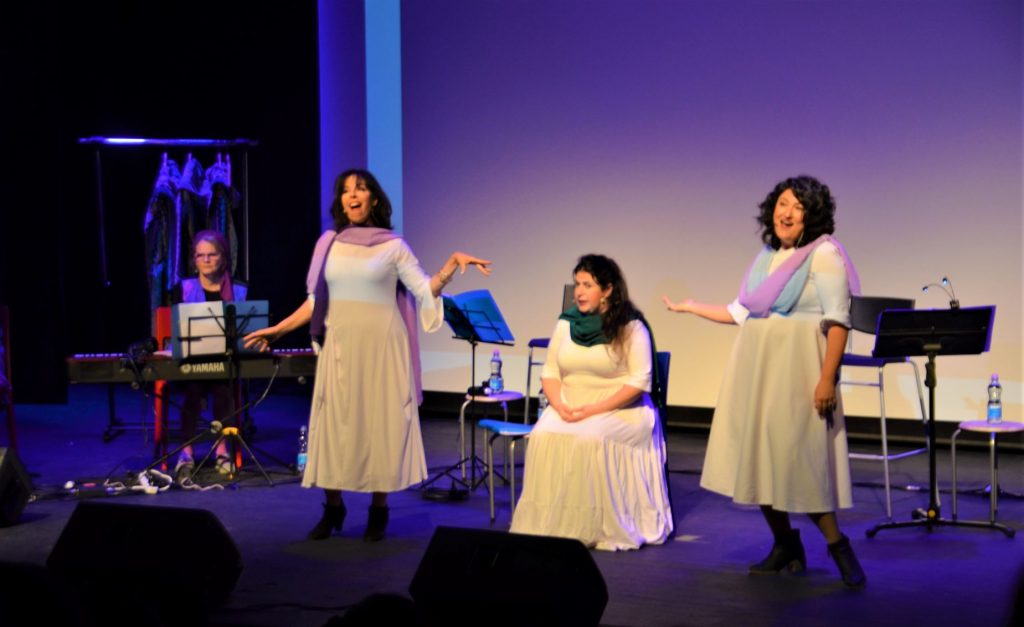
It is performed in the style known as ‘Reader’s Theater,’ where songs, monologues, and dialogues, are without background sets. The powerful readings convey true stories collected from real women. The audience is drawn into the stories and responds in laughter and tears to the various situations encountered with the mitzvah of mikva.
One of the scenes, called “Killer Genes,” was written by an anonymous author with the BRCA gene who describes going to the Tel Aviv seashore with her husband, for mikva, before her prophylactic risk-reducing mastectomy. She dedicated the monologue in honor of Ahava Emuna Lange z”l, a young mother of five children, who died from ovarian cancer in August 2019.
This monologue highlights the significance of holding the performance in the month of October. October is also National Breast Cancer Awareness Month, which began in 1985, and was the first organized movement to bring attention to the dangers of breast cancer in the United States. Since then, campaigns to educate the public about the disease have continued to thrive and multiply.
One in 40 Ashkenazi Jewish women has a BRCA gene mutation, a much higher percentage than in the general population. Mutations in the BRCA genes raise a person’s risk of getting breast cancer at a young age, and also for getting ovarian and other cancers. That is why Ashkenazi Jewish women are at higher risk for breast cancer at a young age. Men can also carry the gene and get breast cancer. The mikva serves as a monthly reminder to self-check for cancer, which if caught in the early stages can be a lifesaver.
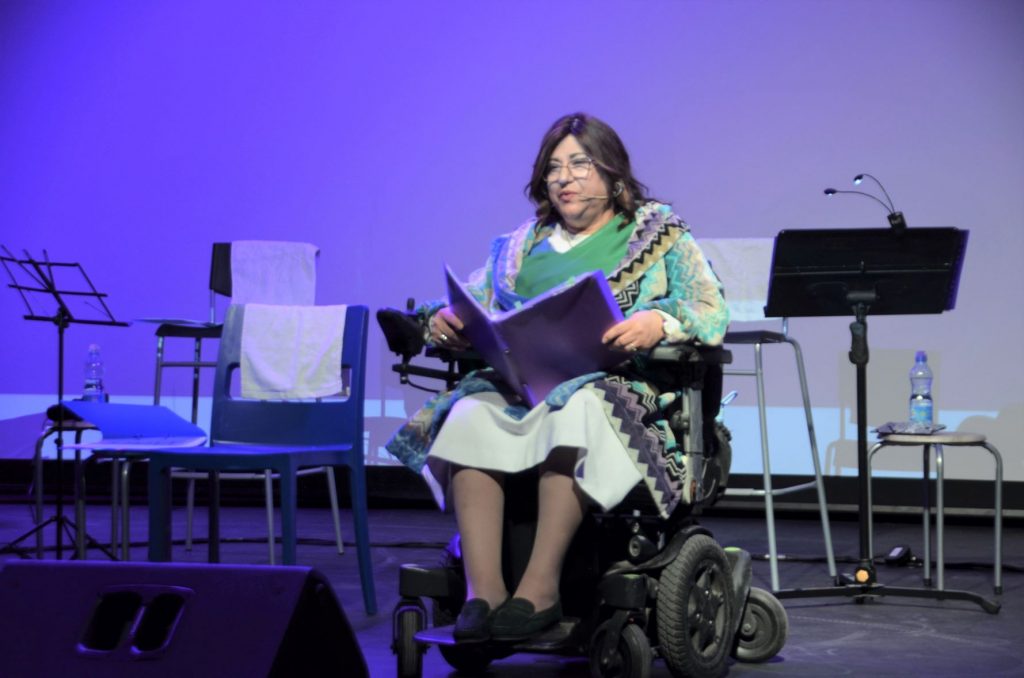
Adina Feldman, Melissa Kay, Gabrielle Shine, and Michele Thaler were impressive performers. Unfortunately, Thaler was missing from the Shalva stage for the first act. She was reportedly in the hospital the night before for an emergency, but no one would have known it, given her powerful performance when she appeared on stage in the second part of the show. Listening to Thaler’s story of her life after her paralysis and how she copes with difficult situations leaves one in awe of her resilience and courage – and comic talent.
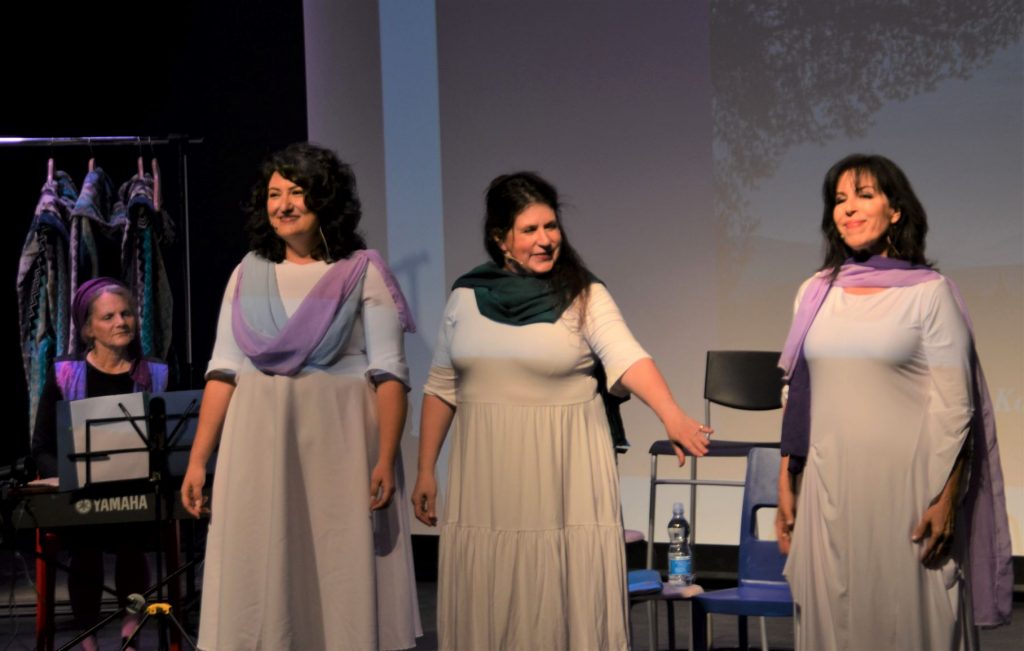
Multi-talented Adina Feldman was not only the lead singer, but music/staging director, choreographer, and head composer. The all-female Tofa’ah Musicians provided excellent live music adding a new dimension to the quality of the show, three of the songs were from their collection of classics. There was also an original song with Klein Greenwald’s lyrics and music by Shalomis Koffler Weinreb. Also, Gutterman co-authored the lyrics to one of the songs.
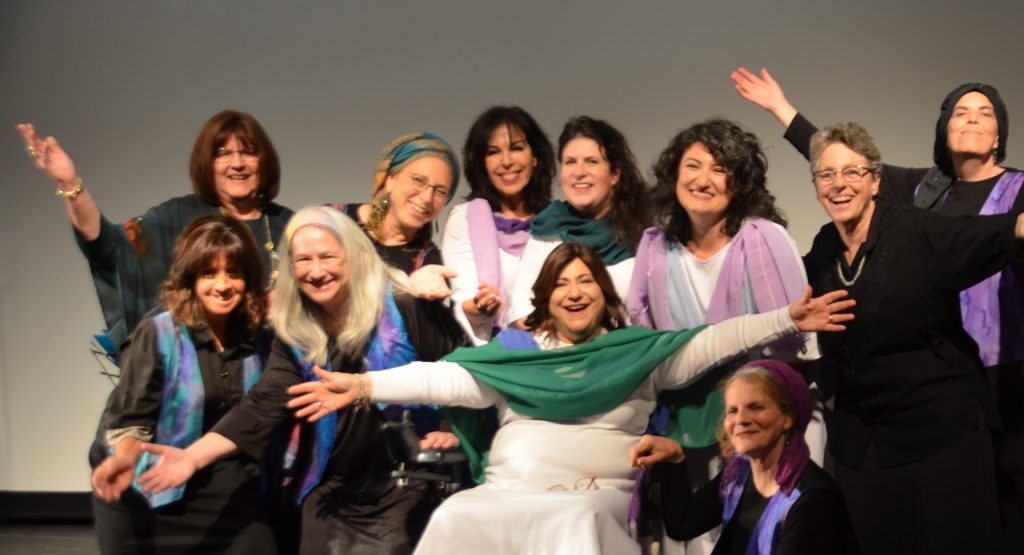
The stated goal of the performance is to have the public develop an awareness and sensitivity to the joys of mikva. Another message conveyed is that in spite of challenges, women continue to perform this important and beautiful mitzvah. While there is a disclaimer on the program stating the show is not intended to be a resource from which to learn Jewish law, it underscores how far women will go to fulfill the mitzvah, even to the frozen ice-covered waters of Kathmandu.
Mikva, the Musical, is produced under the non-profit aegis of Raise Your Spirits Theatre, an educational theater company dedicated to Torah values led by Klein Greenwald and Tamar Rubin along with a large cast of female performers and supporters. Female productions for women-only are not only becoming more common, but the quality of the shows is improving.
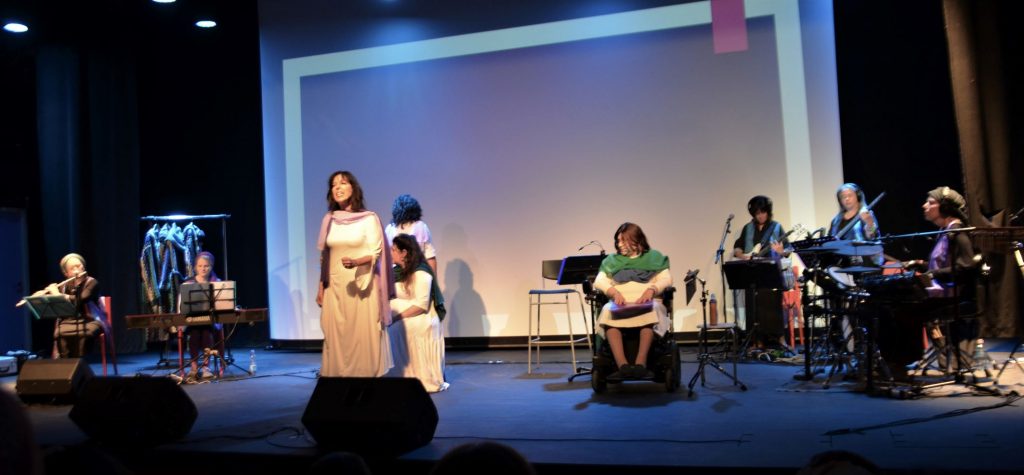
The talented Tofa’ah Musicians are Yona Saslow Yacobovitz, Mindy Fuhrer, Tamar Attias, and Rahel Limor, with Ruti Sokoloff on the keyboard. Assisting with the technical aspects of the Shalva production was Bryna Billauer Ozarowski.
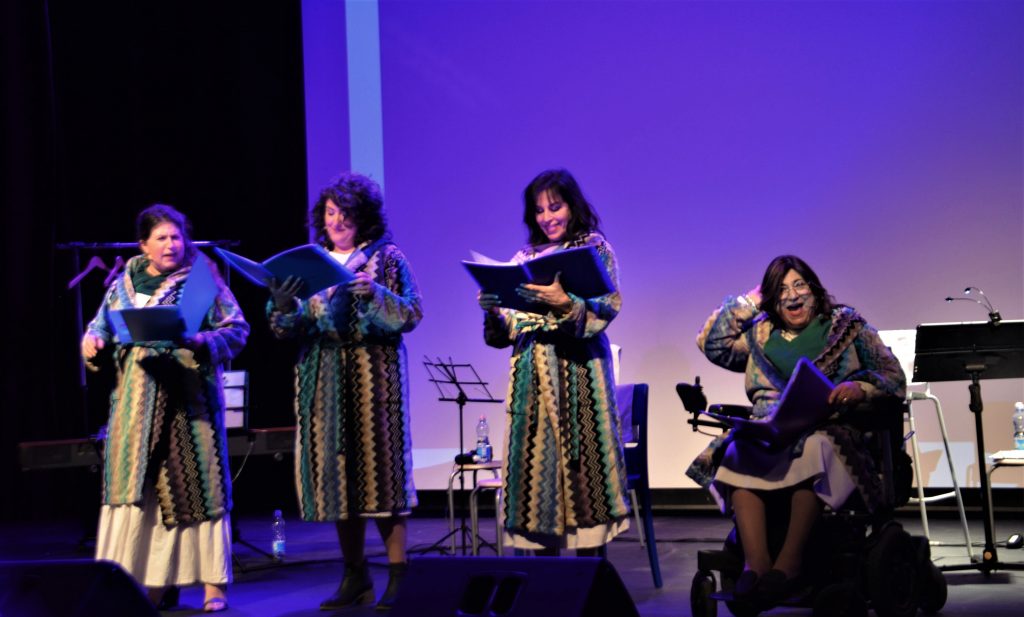
The colorful robes worn in this scene were donated by Judith and Luca Missoni from the Missoni fashion house.
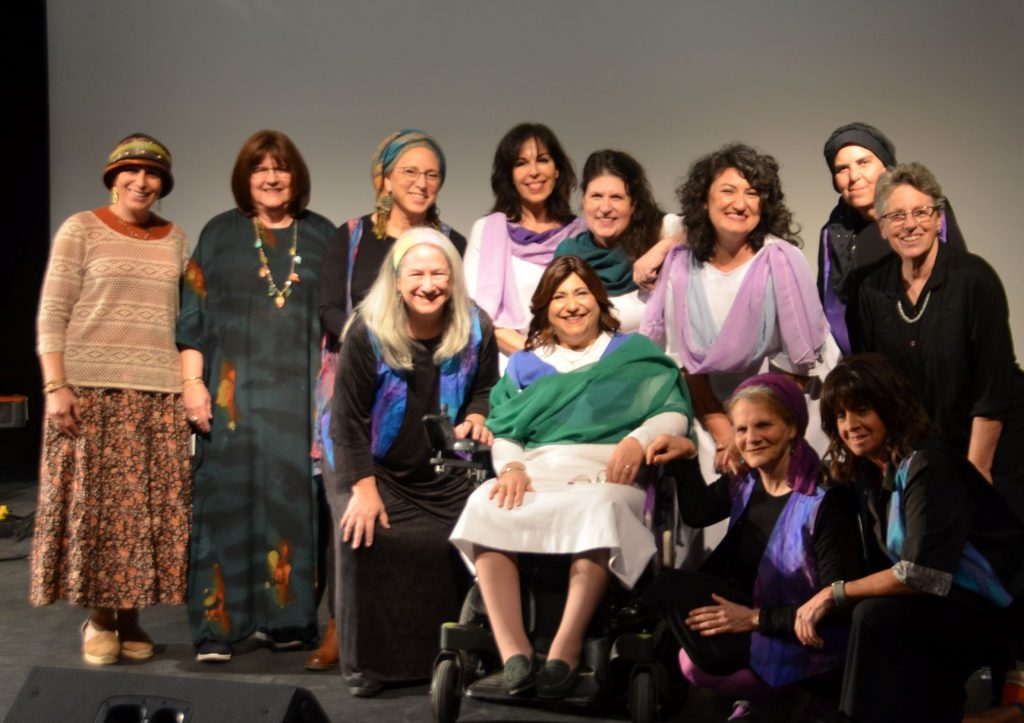
Rebbitzen Shani Taragin provided words of insight at the end of the show during a question and answer session which gave the audience an opportunity to participate.

It was a very fitting way to conclude October Breast Awareness month which began with Jerusalem’s iconic sites lit up at night in pink lights.
Thank you Sharon for this wonderful article! And to others reading this: We are seeking sponsors so we can continue this important project and take it elsewhere throughout Israel and the world! http://www.mikvathemusical.com